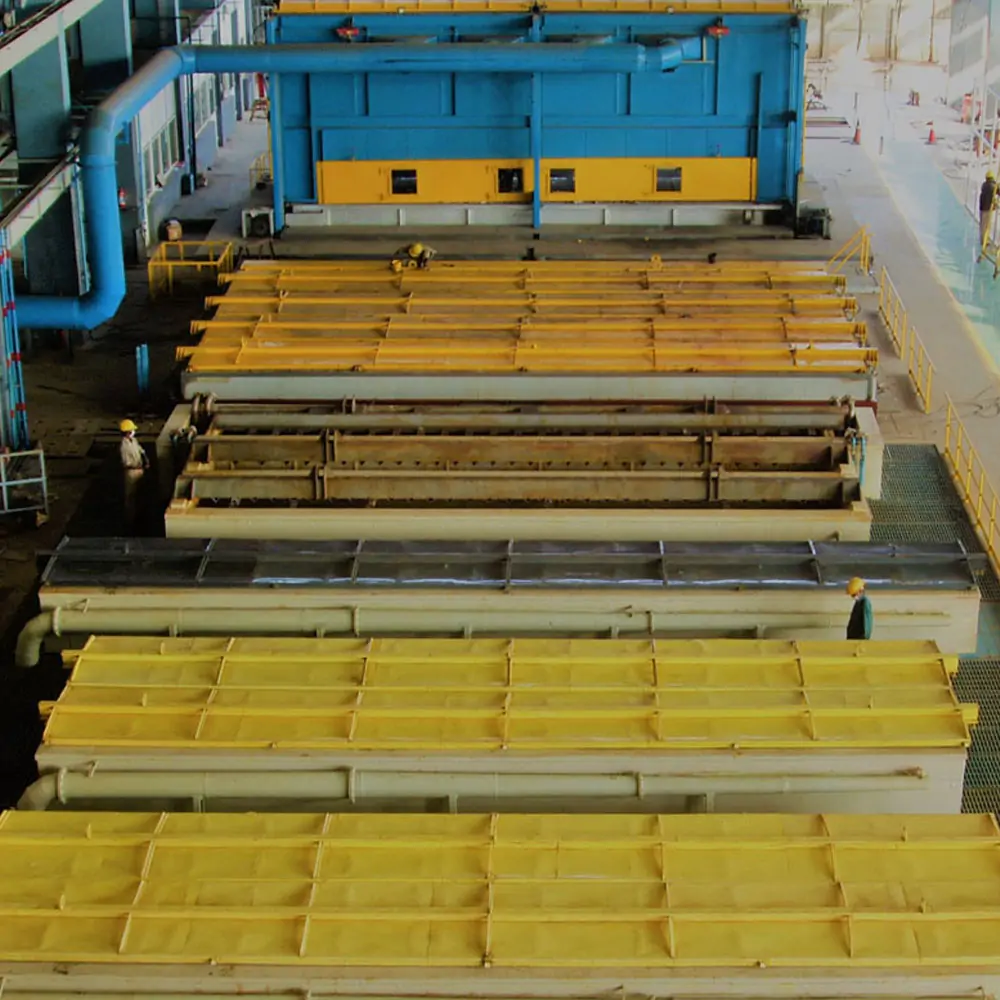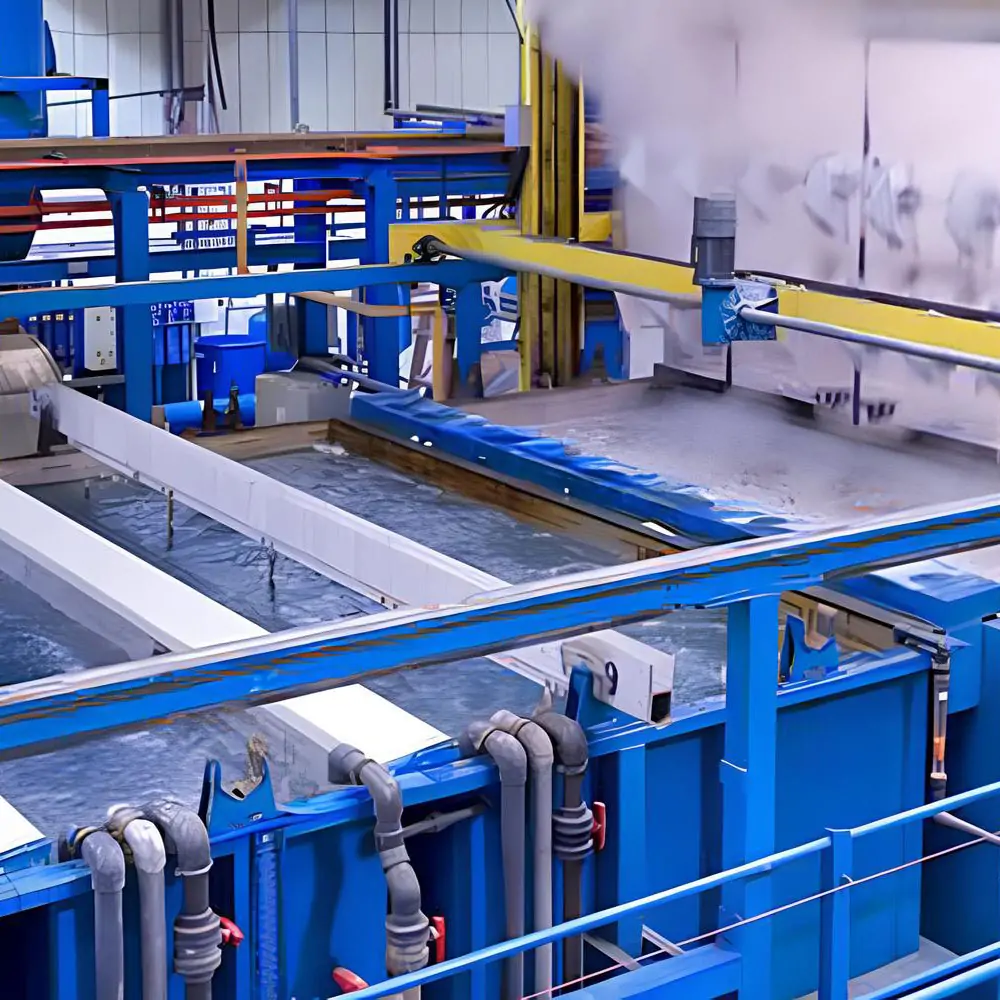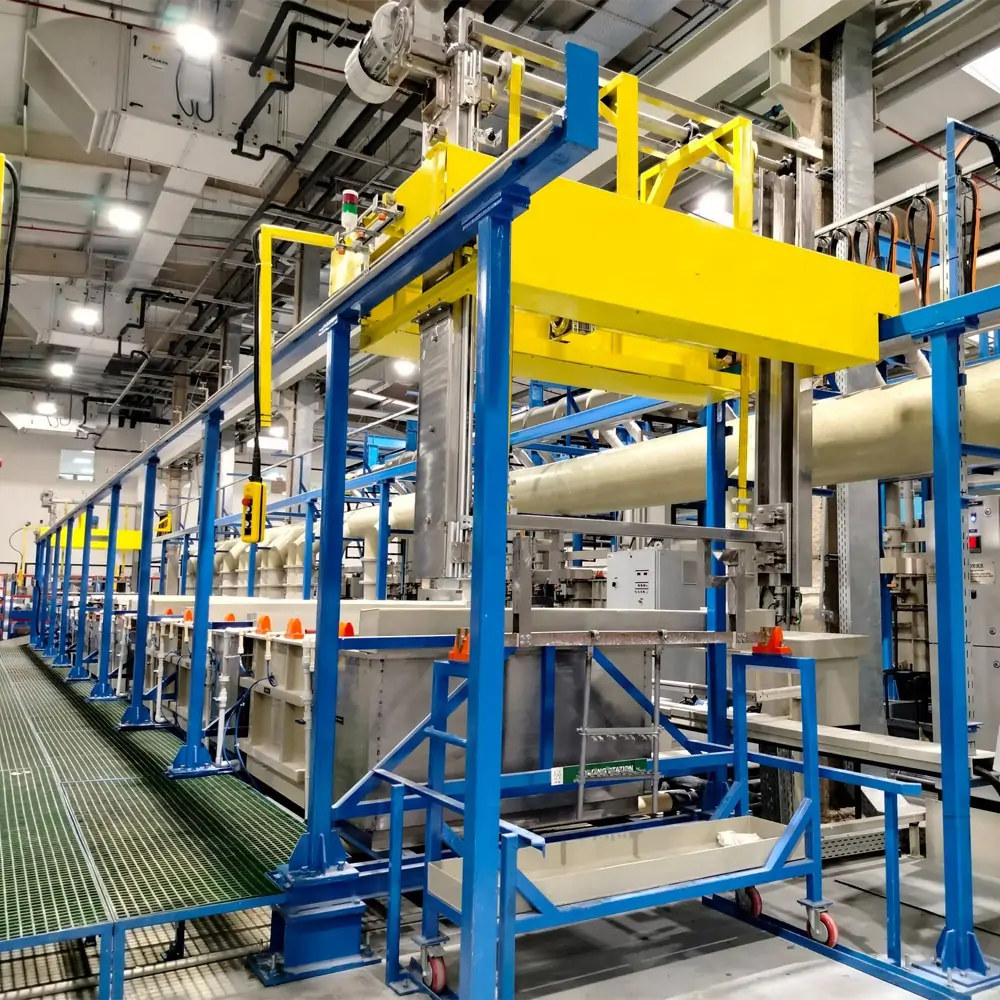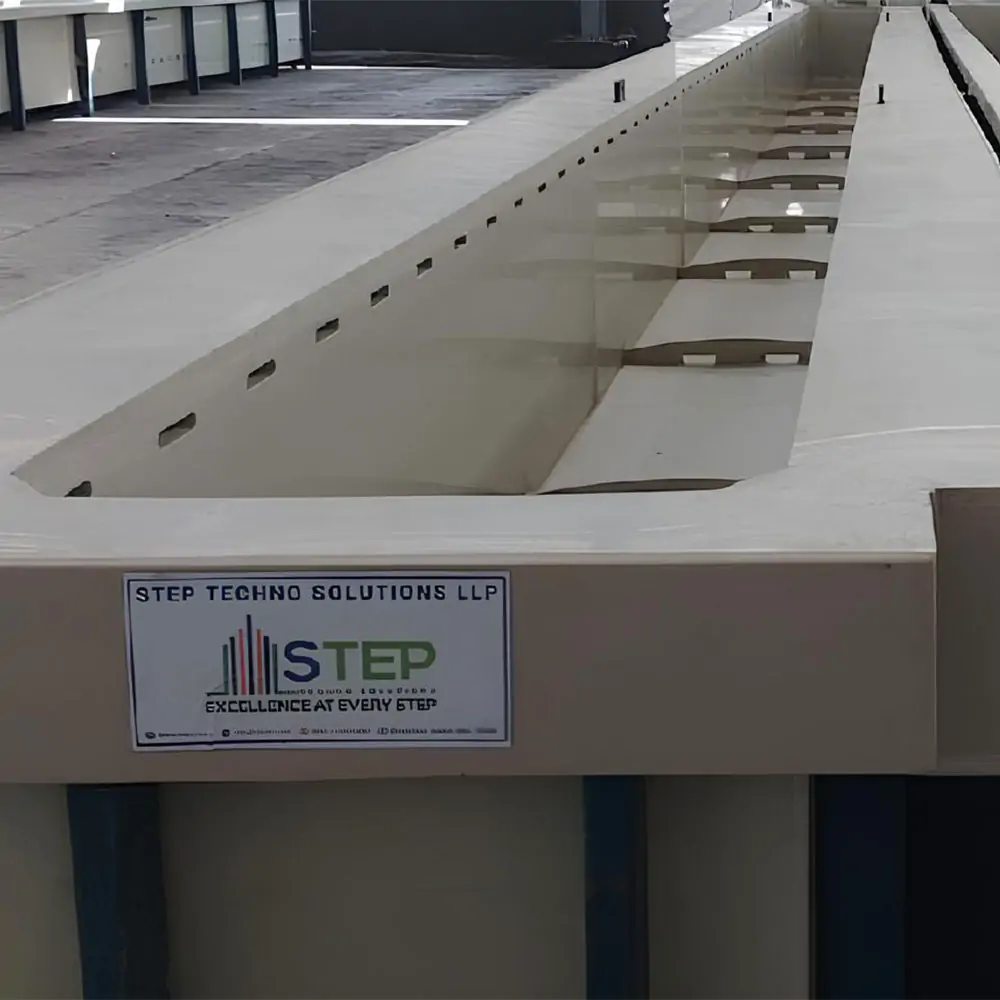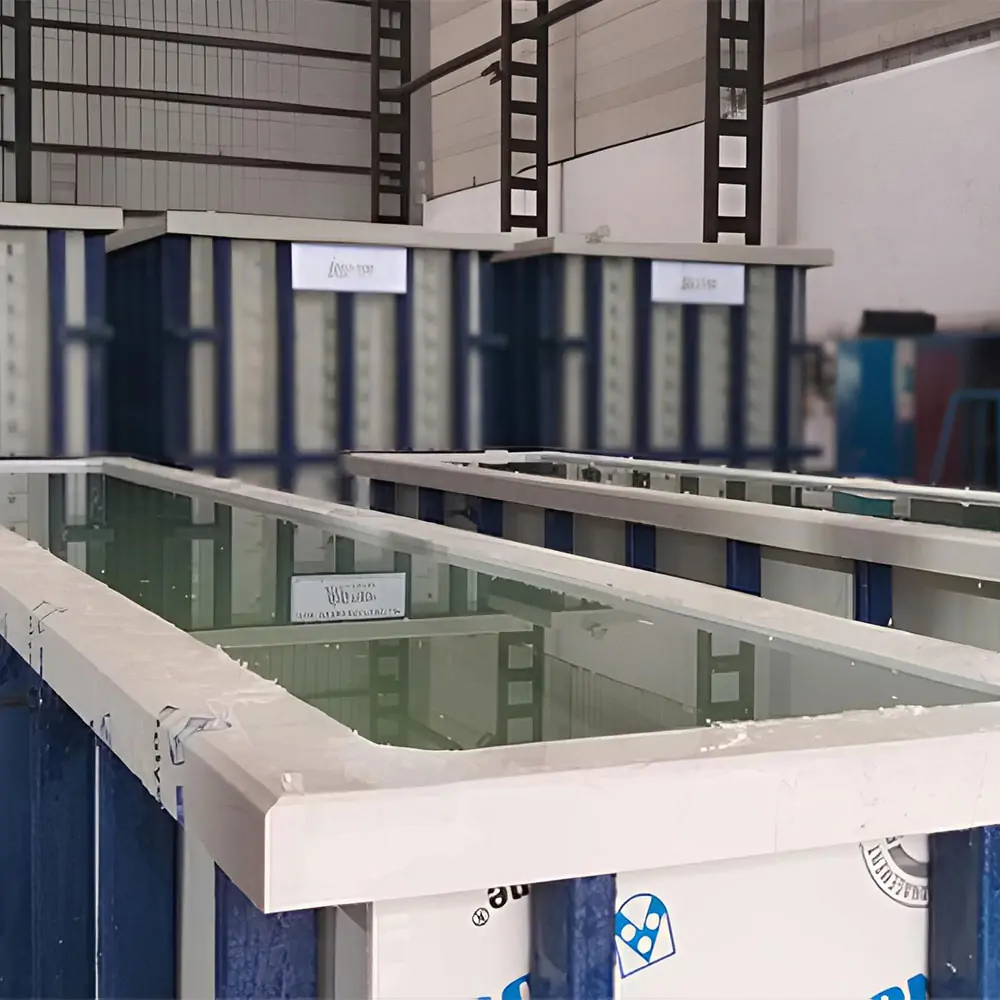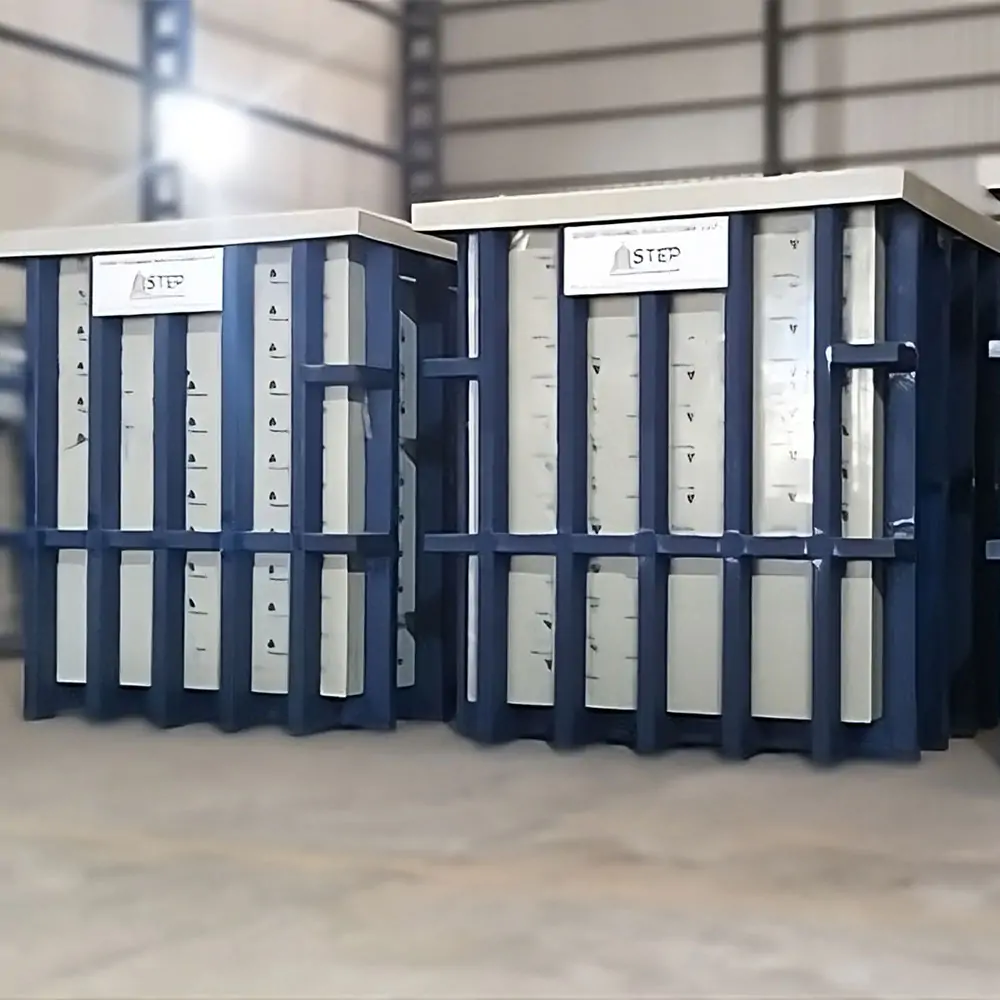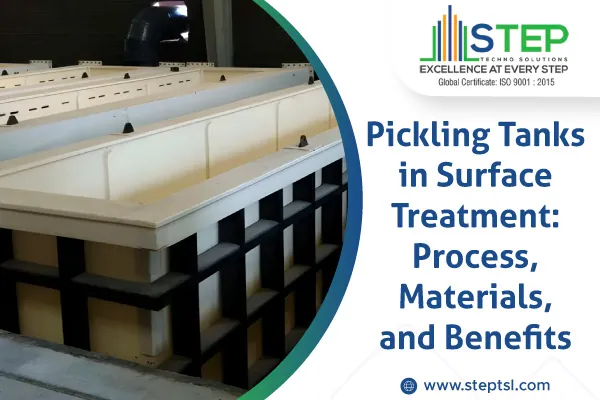Pickling tanks are essential in surface treatment for cleaning and preparing metal surfaces before coating, painting, or galvanizing. The pickling process involves immersing metal parts in acid or alkaline solutions to remove rust, scale, and other impurities. This treatment ensures a clean, smooth surface that enhances coating adhesion and improves corrosion resistance. Pickling tanks are widely used in industries like steel manufacturing, automotive, and fabrication to ensure high-quality finishes and long-lasting performance. Made from materials like polypropylene, stainless steel, or FRP, these tanks are designed to resist corrosion and handle harsh chemicals. They help extend the life of metal components and ensure consistent production quality. In modern industry, pickling tanks not only improve surface quality but also contribute to safer, more efficient, and environmentally friendly operations. Investing in the right pickling tank system is key to achieving reliable and effective surface treatment in any metalworking facility.
Pickling Tanks in Surface Treatment
Pickling tanks are specially constructed containers for cleaning metal surfaces by chemically eradicating scale, rust, oil, and other contaminants. These tanks play a key role in industries such as steel manufacturing, galvanizing, automotive, construction, and fabrication.
Without effective pickling, coatings like paint, plating, or galvanizing may not adhere properly to the metal, reducing product life and performance. Pickling tanks ensure that metals are clean, reactive, and ready for the next stage of processing, such as plating, anodizing, or coating.
Importance of Pickling Tanks in Industrial Processes
Pickling tanks are not just containers—they are engineered systems designed to handle corrosive chemicals safely and efficiently. They enable:
- Efficient surface preparation before coating or finishing
- Uniform treatment of metal surfaces
- Improved product performance through better adhesion and corrosion resistance
Using the right pickling tank helps reduce rework, ensures product consistency, and increases production efficiency. As industries demand higher quality and longer-lasting components, the importance of reliable surface treatment has grown, making pickling tanks indispensable in modern manufacturing.
What is Pickling in Surface Treatment?
Pickling is a metal treatment process that involves removing oxides, scale, rust, and other contaminants from a metal surface using acid or alkaline solutions. The result is a clean and reactive surface, free from impurities and ideal for further treatment like painting, galvanizing, or welding.
Steps Involved in the Pickling Process
- Cleaning the Metal Surface
Before pickling, the metal is cleaned to remove oil, grease, or loose dirt. This can be done using solvents or alkaline cleaners to ensure the acid solution works more effectively. - Immersing the Metal in the Pickling Solution
The cleaned metal is immersed in a tank filled with a pickling solution—either acid or alkaline-based. This chemical bath dissolves oxides, rust, and scale from the surface, revealing clean metal underneath. - Rinsing the Metal with Water
After pickling, the metal is carefully cleaned with clean water to eliminate any remaining acids and prevent future corrosion. In some cases, neutralizing agents are also used to stop the chemical reaction.
The duration of pickling depends on the type of metal, the thickness of the oxide layer, and the concentration of the pickling solution.
Types of Pickling Solutions
Pickling tanks are designed to withstand harsh solutions of chemicals. Two common types of pickling solutions are:
- Acid-Based Solutions
- Typically use hydrochloric acid, sulfuric acid, or nitric acid.
- Effective in removing rust, mill scale, and heavy oxides.
- Require acid-resistant tank materials and proper ventilation due to fume generation.
- Typically use hydrochloric acid, sulfuric acid, or nitric acid.
- Alkaline-Based Solutions
- Use caustic soda or alkaline salts.
- Less aggressive, ideal for light cleaning and degreasing.
- Often used as a pre-cleaning step before acid pickling.
- Use caustic soda or alkaline salts.
Materials Used for Pickling Tanks
Pickling tanks must be constructed from materials that resist corrosion and chemical damage. Common materials include:
- Stainless Steel
- Extremely durable and strong
- Suitable for high-temperature processes
- Requires careful maintenance to prevent corrosion in acid pickling
- Extremely durable and strong
- Plastic (Polypropylene or HDPE)
- Lightweight, non-reactive, and corrosion-resistant
- Ideal for acid and alkaline pickling
- Cost-effective and easy to install
- Lightweight, non-reactive, and corrosion-resistant
- Glass-Lined Tanks
- Resistant to strong acids and high temperatures
- Expensive and more fragile compared to plastic or steel
- Used in high-purity or specialized chemical applications
- Resistant to strong acids and high temperatures
Choosing the right tank material depends on the chemicals used, operating temperature, and duration of the pickling prose.
Benefits of Pickling Tanks
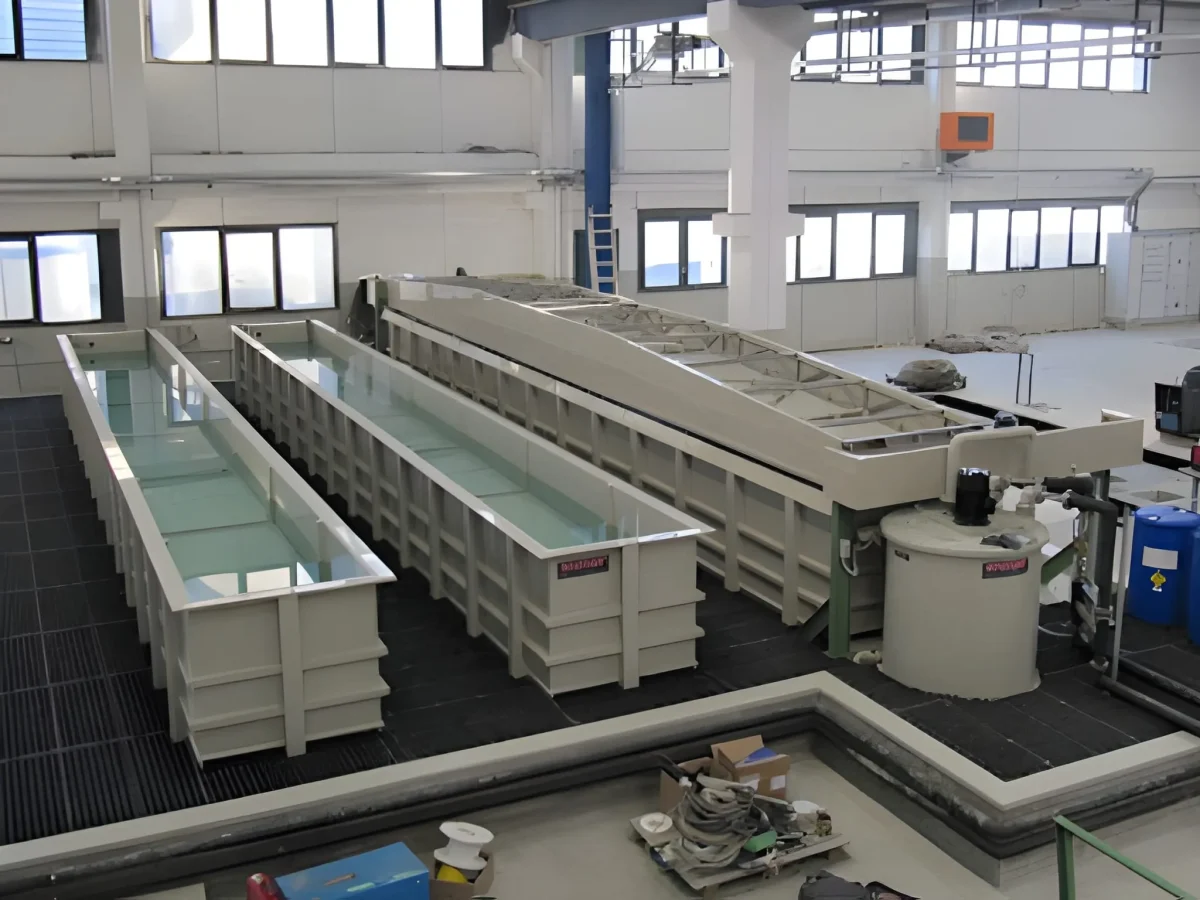
Investing in high-quality pickling tanks offers multiple benefits for industrial operations:
- Removes Impurities from Metal Surfaces: Pickling tanks effectively remove scale, rust, and oxidation from metal surfaces, ensuring better bonding for paint, plating, or other coatings.
- Improves Adhesion of Coatings: A clean, chemically reactive surface improves the adhesion of paints, powder coating, and galvanizing, which enhances the appearance and durability of the final product.
- Extends the Lifespan of Metal Components: By eliminating corrosion-causing elements, pickling helps increase the service life of metal components, especially those exposed to harsh environmental conditions.
- Environmentally Friendly Compared to Other Methods: Modern pickling systems with fume extraction and wastewater treatment are more eco-friendly. They reduce the need for abrasive cleaning or manual grinding, which can generate harmful dust and noise.
Proper design and operation of pickling tanks contribute to safer workplaces, better product quality, and compliance with environmental regulations.
Who is the Leading Manufacturer of Pickling Tanks?
STEP® Techno Solutions LLP is one of the most trusted Pickling Tanks Manufacturers in India, known for producing high-quality, durable tanks for surface treatment processes. As a leading name among Pickling Tanks Manufacturers, we offer custom-built tanks designed to meet the specific needs of industries such as steel processing, galvanizing, fabrication, and automotive. Their tanks are made using top-grade materials like polypropylene (PP), FRP (Fiber-Reinforced Plastic), and stainless steel, ensuring excellent chemical resistance and long operational life. Each tank is engineered to handle harsh pickling solutions, withstand temperature variations, and deliver consistent performance with minimal maintenance. With years of experience and technical expertise, the company provides tailored solutions that comply with safety and environmental standards. Our pickling tanks are also compatible with essential accessories like fume extraction systems, agitation units, and filtration systems. Whether for small workshops or large-scale industrial plants, STEP® Techno Solutions LLP ensures on-time delivery, reliable support, and long-lasting performance, making it the preferred choice for businesses seeking efficient and safe surface treatment solutions.
Conclusion
Pickling tanks are essential for industrial surface treatment because they keep metal surfaces clean and corrosion-free. From removing impurities to improving adhesion and extending product lifespan, they are an essential part of modern manufacturing and finishing operations. With advancements in materials and technology, today’s pickling tanks are safer, more efficient, and environmentally friendly.
For businesses looking to enhance their metal finishing process, investing in high-quality pickling tanks is a smart and necessary decision. Choose STEP® Techno Solutions LLP to get custom-engineered tanks that meet your exact needs, built with expertise, and backed by trusted support. Contact Now +91 98988 75757, info@steptsl.com.
FAQ
What is a pickling tank?
A pickling tank is a chemical-resistant container used to clean metal surfaces by removing rust, scale, and impurities through immersion in acid or alkaline solutions before further surface treatments like coating or galvanizing.
Why is pickling important in metal finishing?
Pickling removes unwanted layers from metal surfaces, ensuring better adhesion of paint or coatings. It also improves corrosion resistance and helps achieve a clean, uniform finish for industrial applications.
What chemicals are used in pickling tanks?
Common pickling solutions include hydrochloric acid, sulfuric acid, and alkaline cleaners. The choice depends on the type of metal and the level of cleaning required before further processing.
What materials are used to make pickling tanks?
Pickling tanks are made from corrosion-resistant materials like polypropylene (PP), FRP (Fiber-Reinforced Plastic), stainless steel, or PVC, depending on chemical compatibility and temperature requirements.
How does the pickling process work?
The metal is first cleaned, then immersed in a pickling solution to remove oxides and rust. Afterward, it’s rinsed with water to neutralize remaining chemicals before further treatment.
Where are pickling tanks commonly used?
Pickling tanks are used in industries like steel manufacturing, galvanizing plants, wire production, automotive parts cleaning, and fabrication shops where clean, corrosion-free surfaces are essential.
Are pickling tanks environmentally friendly?
Modern pickling tanks with proper ventilation, filtration, and waste treatment systems are environmentally friendly, helping reduce hazardous emissions and comply with industrial safety regulations.
What are the benefits of using pickling tanks?
Pickling tanks ensure cleaner surfaces, better coating adhesion, longer-lasting products, improved corrosion resistance, and reduced rework—saving time and costs in industrial operations.
How do I maintain a pickling tank?
Regular maintenance includes checking chemical levels, cleaning the tank, inspecting for leaks or damage, and replacing worn-out accessories like filtration units or fume covers.
Who manufactures quality pickling tanks in India?
STEP® Techno Solutions LLP is a trusted manufacturer of high-quality, durable pickling tanks in India, offering customized solutions for various industrial surface treatment applications.

